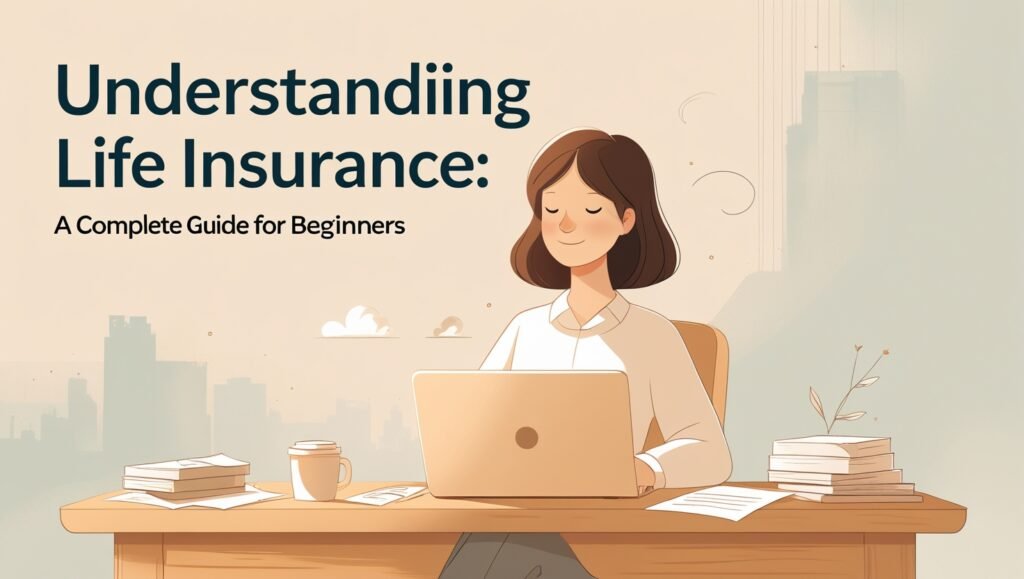Introduction: Why Life Insurance Matters
Life is unpredictable. While we cannot control what happens in the future, we can prepare for it. Life insurance is a powerful financial tool that ensures your loved ones are protected in the event of your untimely passing. Whether you’re the sole breadwinner of your family or just starting your financial planning journey, understanding how life insurance works is crucial.
In this guide, chimehub.site breaks down everything you need to know about life insurance—types, benefits, costs, and how to choose the right policy.
What is Life Insurance?
Life insurance is a contract between an individual (policyholder) and an insurance company. The insurance company agrees to pay the beneficiary a lump sum (referred to as a death benefit) upon the policyholder’s death in exchange for consistent premium payments.
Types of Life Insurance
1. Term Life Insurance
- Definition: Provides coverage for a specific period (10, 20, or 30 years).
- Pros: Affordable premiums; simple structure.
- Best for: People who need temporary coverage during key life stages (e.g., raising children, paying off debt).
2. Whole Life Insurance
- Pros: Lifelong protection; builds cash value over time.
- Best for: Individuals seeking long-term financial planning and wealth transfer.
3. Universal Life Insurance
- Pros: Ability to grow cash value; flexible payments.
- Best for: Those who want both life insurance and investment options.
4. Variable Life Insurance
- Definition: Offers a death benefit plus investment options in sub-accounts like mutual funds.
- Pros: Potential for higher returns.
- Best for: People comfortable with investment risks.

Key Benefits of Life Insurance
✅ Financial Protection for Loved Ones
Ensures your family can maintain their lifestyle, pay bills, or afford education costs even if you’re no longer around.
✅ Debt and Loan Repayment
Covers outstanding debts like mortgages, car loans, or personal loans, so your family isn’t burdened.
✅ Funeral and Final Expenses
Includes coverage for unexpectedly high legal fees, hospital expenses, and burial costs.
✅ Wealth Transfer and Inheritance
Provides a tax-efficient way to pass wealth to your heirs.
How Life Insurance Works
- Choose a Policy: Based on your goals, age, and financial situation.
- Pay Premiums: Monthly, quarterly, or yearly payments to keep your policy active.
- Name a Beneficiary: The person(s) who will receive the payout.
Who Needs Life Insurance?
- Parents with young children
- Breadwinners
- Married couples with shared debt
- Business owners
- Anyone with financial dependents
- Retirees planning estate transfer

How Much Life Insurance Do You Need?
Here’s a simple formula:
Life Insurance Amount = (Annual Income × Years You Want to Replace Income) + Outstanding Debt – Savings/Investments
Example:
If you earn $50,000 a year and want to replace income for 10 years, plus you have $100,000 in loans and $30,000 in savings:
→ (50,000 × 10) + 100,000 – 30,000 = $570,000 coverage needed
Factors That Affect Life Insurance Premiums
- Age: Younger = cheaper
- Health: Chronic conditions = higher premiums
- Lifestyle: Smokers or high-risk jobs pay more
- Coverage Amount
- Policy Type
Steps to Buying Life Insurance
- Assess Your Needs
- Compare Plans and Providers
- Choose Beneficiaries
- Undergo a Medical Exam (for some policies)
- Review Terms and Conditions
- Start Paying Premiums
Common Life Insurance Myths
❌ “I don’t require insurance because I’m young and healthy.”
The best time to purchase life insurance is while you’re young and healthy.Lock in lower premiums early.
❌ “My employer’s insurance is enough.”
Group life insurance through employers is often limited and may not follow you if you switch jobs.
Life Insurance in Pakistan: What You Should Know
Life insurance is growing in popularity in Pakistan, especially as financial awareness spreads. Major companies like EFU Life, Jubilee Life, Adamjee Insurance, and State Life Insurance offer both Islamic (Takaful) and conventional life insurance plans.
You can buy life insurance:
- Through an agent
- Directly from the provider’s website
- Via online aggregators like Smartchoice.pk or Insurance Bazaar

How chimehub.site Can Help
At chimehub.site, we’re committed to making insurance easier for everyone. Here’s how we help:
- ✅ Simplified explanations of insurance terms
- ✅ Side-by-side comparisons of providers
- ✅ Tips on choosing the best plan for your family
- ✅ Latest news on Pakistani insurance trends
- ✅ Trusted advice tailored to your financial goals
Conclusion
Life insurance isn’t just a policy—it’s a promise to protect the people you love most. Whether you’re buying your first policy or upgrading your current one, the key is to choose coverage that aligns with your goals and budget. With the right life insurance, you can secure your family’s future and gain peace of mind today.
Explore chimehub.site for more insurance guides, updates, and expert tips. Make smart decisions that safeguard your future.
FAQs About Life Insurance
❓ What’s the best age to buy life insurance?
Answer: The earlier, the better.
❓ Is life insurance taxable in Pakistan?
Answer: In most cases, the death benefit is tax-free for the beneficiary.
❓ Can I cancel my life insurance policy anytime?
Answer: Yes, but you may lose some benefits or cash value if it’s a whole life policy.
❓ Do I need a medical test to buy life insurance?
Answer: For most term plans, yes. But some providers offer no-exam policies at higher premiums.
